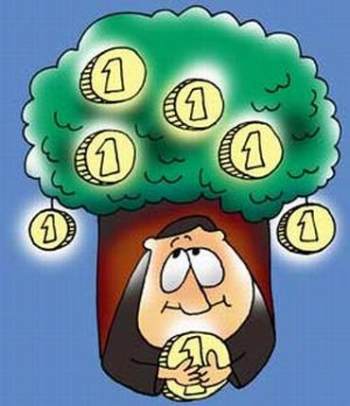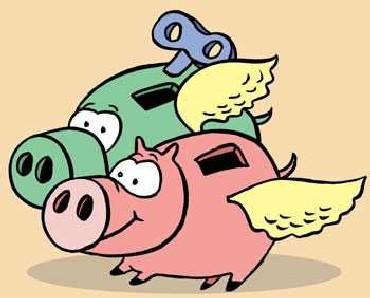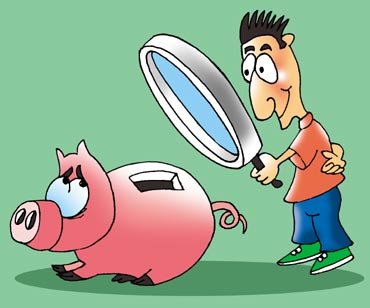Please Share::  India Equity Research Reports, IPO and Stock News
India Equity Research Reports, IPO and Stock News
Visit http://indiaer.blogspot.com/ for complete details �� ��
Visit http://indiaer.blogspot.com/ for complete details �� ��
Now that interest rates are headed downwards fixed deposits will no more be attractive to investors. Stock markets too have run up too fast since January 2012. Here are some alternatives to earn higher and relatively risk-free returns.
Equity investors had a tough time in 2011 with Indian indices tanking well over 25 per cent from highs posted in November 2010. In such times, capital preservation can be more important for investors than generation of superior returns. While for many investors, debt by default means 'fixed deposits' it is not always the most prudent option. Perhaps, it may be right time to look at other debt instruments too.
One more reason for taking positions in debt now is since interest rates seem to have peaked out and are widely expected to come down in the coming year -- slowly if not rapidly. So investors looking to put money in debt should look at various debt options which benefit from falling interest rates.
Courtesy: Investment-mantra.in
Investors can look to lock in money in tax free bonds which will be boom for investors in highest tax bracket. Another option can be to buy in to the bonds that are listed on stock exchanges but are quoting at a discount and offering better yields (post tax returns).
Investors can also look to invest in long term gilt funds / debt funds. This is because of the inverse proportion between yields and bond prices, that is, bond price goes up when the yield comes down and vice versa. Hence, they can generate extra returns now.
We look at few financial instruments apart from FDs which investors can consider while making their debt portfolio:
Tax free bonds
These are best suited for investors belonging to the higher tax brackets of 20 per cent and 30 per cent.
For instance, the best interest rate offered by bank FDs currently is close to 10 per cent and for investor who falls in 30 per cent bracket, the post-tax yield is only 6.91 per cent.
In comparison, tax free bonds are offering a coupon rate of 8.2 per cent for 10 years and 8.3 per cent for 15 years. So it can be a smart option for investors who can lock-in amount for long duration for better post tax returns than FDs.
Long term debt funds
Though last year short term debt funds ruled the roost, this may be the optimum time to invest in longer duration debt funds, namely medium and long term gilt funds. When interest rates fall, debt funds witness a rise in their NAV and vice versa.
Now that interest rates have seemed to have peaked of, the bond market is anticipating a reduction in the interest rates in near future and is therefore moving towards long term bonds.
Fixed maturity plans
Currently most investors are looking to lock in their money at FDs of around 9.5 per cent offered by various banks. But fixed maturity plans, FMPs, can offer better tax adjusted returns.
FMPs have a fixed tenure and are pure fixed income products. However, FMPs don't guarantee fixed rate of return but they offer better post tax returns.
The interest earned on bank FDs is taxable according to the income tax bracket the individual belongs to. So an investor in highest tax bracket holding a 10 per cent FD will effectively earn a post tax yield of 6.91 per cent. This is not in case of FMPs. This is because FMPs with maturity of more than a year are eligible for inflation indexation benefits where returns are taxed at 10 per cent without indexation and 20 per cent with indexation whichever is beneficial for investor.
FMPs are best suited for conservative investors who are looking for better post tax returns than FDs.
Dynamic Bond Funds
Within the debt fund category, dynamic funds have emerged winners over the last six months. Dynamic bond funds have the flexibility to shift scheme maturity period according to interest rate scenario. The fund managers also have flexibility to move into cash and wait when there is unusual movement in the interest rates.
Dynamic bond funds are well positioned to stay abreast of the interest rate cycle. They have flexibility to shift allocation and also change the mix of underlying debt instruments. Make sure you evaluate track record of the fund manager beforeinvesting.
Corporate FDs
There are also fixed deposits offered by corporates. Credit rating of the company must be evaluated by investors before putting money in such FDs. This is because corporates normally approach investors with FDs when they find it difficult to source funds from their regular sources such as bank loans and institutions money markets.
Liquidity can also be issue in such FDs as many of these deposits do not permit premature withdrawal.
Conclusion
Investing in debt instruments is not a cakewalk as there is a flip side to it as well. Investors need to understand that though debt is a safer option they cannot adopt buy and forget option. Besides this, liquidity can be an issue in debt instruments. Many of these options, especially with tax benefit, come with lock-in period and are therefore, illiquid. Also you need to evaluate the credit risk. Go with one which has higher credit rating as you are locking your money for long duration of time. Investors are advised to have a good mix of debt instruments in their portfolio to fetch effective post tax returns on their investments.








No comments:
Post a Comment